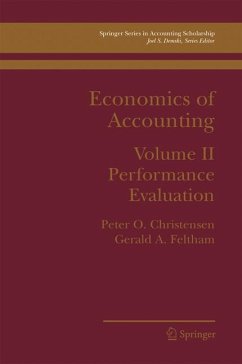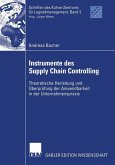ECONOMICS OF ACCOUNTING: Volume II - Performance Evaluation is divided into four parts. Volume I contains Parts A through D, and the concepts developed in Part A are fundamental to both volumes. In Volume II, Part E initially focuses on optimal contracts in a single-agent /single-task/single-period setting, and explores how performance measure characteristics affect the principal's expected payoff. Multiple performance measures (including the stock price) and multiple tasks are introduced, thereby creating settings in which the principal is concerned with both the level of incentives and the congruency of the incentives with his own preferences. Part F considers the impact of start-of-period private management information (with communication to the principal) and limited commitment in single-period settings. These analyses serve as a bridge to the multi-period models explored in Part G. These multi-period models permit exploration of the impact of inter-period consumption preferencesand limited inter-period commitments on preferences with respect to the inter-period correlation and timing of performance reports. Part H concludes the book with an analysis of multi-agent contracting in settings in which agents may coordinate their actions to their mutual benefit, and may even engage in overt collusion.
Dieser Download kann aus rechtlichen Gründen nur mit Rechnungsadresse in A, B, BG, CY, CZ, D, DK, EW, E, FIN, F, GR, HR, H, IRL, I, LT, L, LR, M, NL, PL, P, R, S, SLO, SK ausgeliefert werden.









